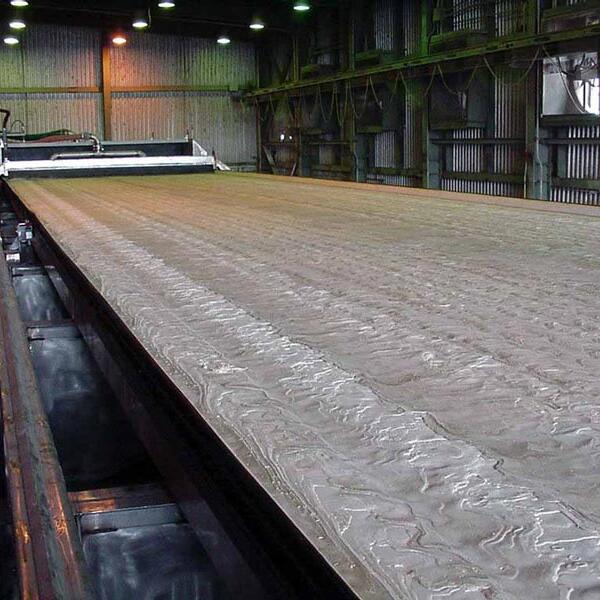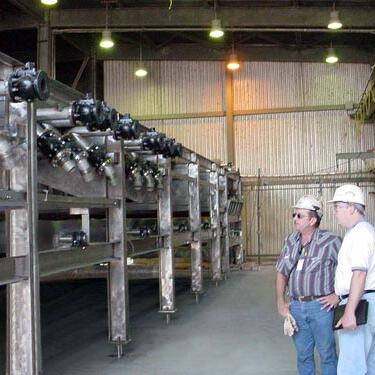Flue Gas Desulfurization (FGD) for Power Plants

Power plants using coal and oil as fuel generally require a scrubbing system for the exhaust fumes, or flue gas, which contains amounts of sulfur. Frequently these plants use a wet process in which a lime slurry neutralizes the sulfuric acid resulting in the formation of gypsum. The gypsum slurry is dewatered by either a horizontal belt filter or rotary drum filter.
Compositech manufactures both types of FGD wastewater treatment filters for our power plant customers who use them to process the by-product of the flue gas desulfurization scrubbers and to produce synthetic gypsum.
The synthetic gypsum can then be sold for the manufacture of wallboard and other materials. The power plant can also reuse the water extracted in this filtration process rather than paying the costs to landfill it.
For high efficiency requirements, Compositech's horizontal belt filter provides the best performance as we manufacture the largest, most effective horizontal belt filters in the industry. To oxidize the slurry, it is put through a reaction vessel where oxidizing agents are added. The reaction converts the sulfites to sulfates. A small amount of polymer is added to flocculate the material to form larger particles making it more easily filtered. The slurry is then processed with our horizontal belt filter. The slurry is washed, the chlorides are removed, and the cake is dried making the final product ready for shipment or disposal.
Flue Gas Desulfurization Treatment Process

A horizontal belt filter is more efficient than a drum filter in this type of application, since gravity assists in the cake formation rather than working against it. The slurry doesn’t settle to the bottom of a vat nor does it build up in the tank or agitator assemblies since these are not a part of the equipment. While horizontal belt vacuum filters are not maintenance free, they are the most efficient and cost effective means of processing FGD gypsum slurry. These FGD treatment filters are capable of achieving up to 90% solids content in the cake and 100 ppm of chloride. To obtain this efficiency, the cake is washed two or three times on the filter through a countercurrent system.
Compositech drum filters are used by power plants for processing the synthetic gypsum by-product of flue gas desulfurization (FGD) if no cake washing is required and higher chloride content in the cake is acceptable. Not all projects require the high efficiency with 90% solids content in the cake obtained by multiple washings with the horizontal belt filter. Our rotary drum filter is designed for the separation of liquids and medium-density solids. With a large active filtration area and choice of construction materials our drum filter can be adapted to meet almost any process demand. Our FGD treatment filter's ability to accommodate maximum hydraulic flows and a wide range of cycle times allows optimum cake formation in many different slurries. In clarifying applications, very high filtrate clarity can be achieved with precoat discharge designs. For corrosive applications, we offer thermoplastic drum filters for dependable vacuum filtration at a substantially lower cost than filters constructed of exotic metals. All components which contact corrosive agents are made of engineered plastics. The most commonly used discharge arrangements for power plant waste processing are belt, scraper, and precoat discharge.
Click here to submit a Request for Quote
or call us today at 281-648-3557

